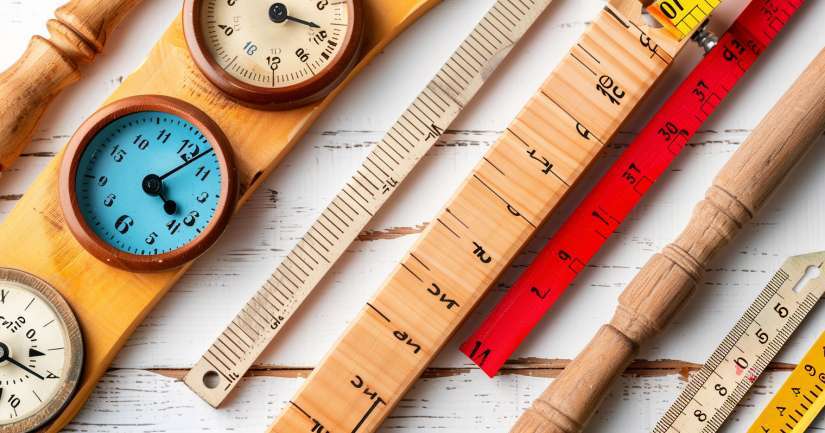Are you ready to put your skills to the test? Take our Conversion of Units Quiz and discover how well you understand measurements. This engaging quiz will challenge your ability to convert between different units, sharpening your math skills along the way. Whether you’re a student, a professional, or just someone looking to brush up on their knowledge, this quiz offers valuable insights.
By participating, you’ll learn to quickly and accurately switch between units like inches, centimeters, gallons, and liters. You’ll gain confidence in handling real-world problems, from cooking recipes to science projects. Each question is designed to test your comprehension and boost your proficiency.
Feel the satisfaction of mastering essential conversion techniques. Dive in, challenge yourself, and see how much you can improve. Take the quiz now and measure your knowledge!

Conversion Of Units – FAQ
The conversion of units is the process of changing a measurement from one unit to another. This can apply to units of length, weight, volume, temperature, and more. For example, converting inches to centimeters or pounds to kilograms. It is essential for scientific calculations, engineering projects, and everyday tasks.
Unit conversion is crucial because it ensures consistency and accuracy in measurements. Different countries and industries use various units, so converting them allows for clear communication and comparison. In science and engineering, precise unit conversions are vital for experiments, designs, and safety. It also helps in daily activities like cooking and traveling.
To convert units of length, you often use a conversion factor. For example, to convert inches to centimeters, you multiply by 2.54 (since 1 inch equals 2.54 centimeters). To convert in the opposite direction, you divide by 2.54. Conversion charts and online calculators can also simplify the process.
Common tools for unit conversion include conversion charts, online calculators, and mobile apps. These tools provide quick and accurate results for various units. Scientific calculators also have built-in conversion functions. For more complex conversions, spreadsheet software like Excel can be programmed to handle multiple conversions efficiently.
Yes, unit conversions can be automated in software applications. Many engineering, scientific, and financial software programs have built-in functions to convert units. Custom software can also be developed to automate specific conversions based on user needs. This automation reduces the risk of human error and saves time.
